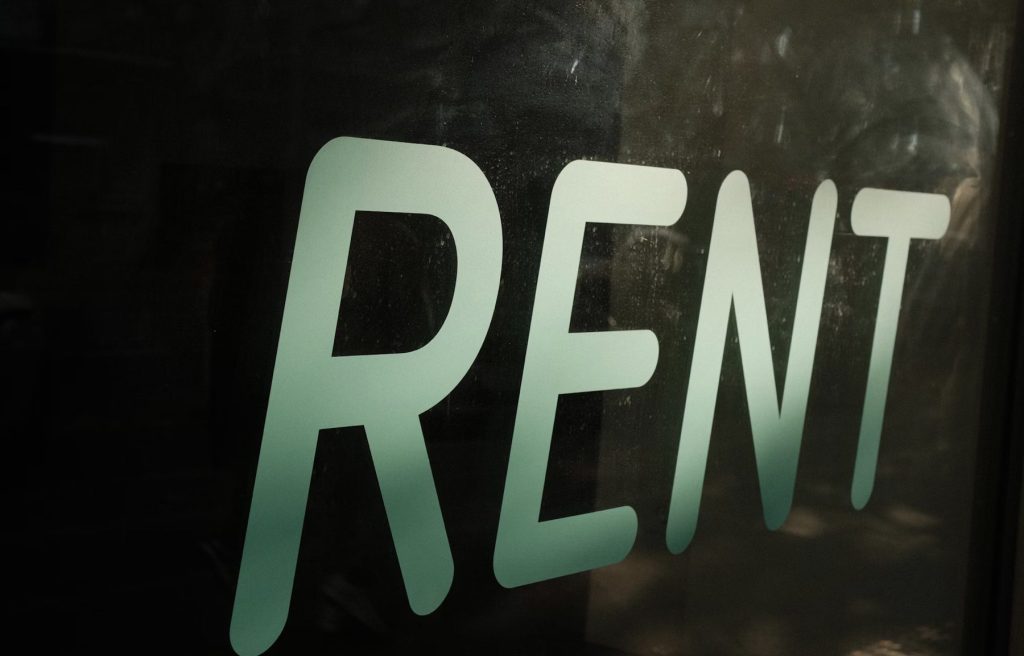Understanding Japan’s Rental Contracts: Ordinary vs Fixed-Term Leases
A Complete Guide for Tenants, Landlords, and Foreign Residents
Chapter 1: Introduction – The Two Main Types of Rental Contracts in Japan
Japan’s rental housing system is based on two distinct types of tenancy agreements: the Ordinary Lease (普通借家契約, Futsuu Shakuyakeiyaku) and the Fixed-Term Lease (定期借家契約, Teiki Shakuyakeiyaku).
Although both allow tenants to rent and live in a property, they differ significantly in terms of contract renewal, termination rights, and legal protection.
Understanding the difference between these two is essential for anyone renting a home or managing a property in Japan—especially foreigners who may be unfamiliar with local regulations under the Act on Land and Building Leases (借地借家法).
Chapter 2: What Is an Ordinary Lease (普通借家契約)?
An Ordinary Lease is the traditional and most common form of rental contract in Japan.
Under this agreement, tenants enjoy strong legal protection, and landlords cannot easily terminate the lease.
Key Features
- Duration: Typically 2 years (though longer terms are possible).
- Renewal: Automatically renewable unless the landlord has justifiable reason (“正当事由”) to refuse renewal.
- Tenant Protection: Strong. Even after the initial period expires, the tenant can continue living in the property if they wish.
- Notice Period: Usually 1–2 months before termination.
Renewal Fee (更新料)
In many regions—especially Tokyo and Kyoto—tenants must pay a renewal fee when extending a lease. This is typically one month’s rent but can vary depending on the area and contract.
Advantages for Tenants
- Long-term stability and legal protection.
- Suitable for families or anyone planning to stay in Japan for several years.
Disadvantages for Landlords
- Difficult to terminate without legal justification.
- Limits flexibility if the owner wants to sell or use the property personally.
Chapter 3: What Is a Fixed-Term Lease (定期借家契約)?
Introduced in 2000, the Fixed-Term Lease is designed for flexibility.
Unlike the ordinary lease, it does not renew automatically at the end of the contract period. Once the lease expires, the tenant must vacate the property unless a new contract is signed.
Key Features
- Duration: Freely determined by both parties (commonly 1–3 years).
- Renewal: No automatic renewal; must sign a new contract if both sides agree.
- Advance Notice: Landlord must give written notice between 1 and 6 months before the lease ends.
- Explanation Requirement: The landlord must provide written notice explaining that the contract is fixed-term, or the agreement could be invalidated.
Advantages for Landlords
- Flexibility to use or sell the property after the term ends.
- Predictable occupancy period—popular for corporate rentals or short-term housing.
Disadvantages for Tenants
- No guarantee of renewal.
- Must plan ahead for relocation.
Real Example
Many owners of furnished apartments or corporate housing use fixed-term leases for 1–2 years to accommodate foreigners, company transferees, or temporary residents.
Chapter 4: Comparing Ordinary and Fixed-Term Leases
| Aspect | Ordinary Lease (普通借家契約) | Fixed-Term Lease (定期借家契約) |
|---|---|---|
| Renewal | Automatically renews unless landlord has justifiable reason | No automatic renewal |
| Tenant Protection | Very strong | Limited |
| Flexibility for Landlord | Low | High |
| Term Length | Usually 2 years | Flexible (short or long) |
| Renewal Fee | Common | Not applicable |
| Termination by Landlord | Requires strong legal reason | Automatic at term end |
| Typical Use | Family housing, long-term tenants | Corporate housing, temporary use |
Summary
Ordinary leases prioritize tenant stability, while fixed-term leases prioritize landlord flexibility.
The best choice depends on whether the tenant seeks long-term security or short-term convenience.
Chapter 5: Common Misunderstandings and Legal Disputes
Despite clear legal distinctions, many disputes arise due to misunderstandings—especially among foreign tenants unfamiliar with Japan’s lease law.
1. “I didn’t know my lease was fixed-term.”
Some tenants sign a contract without realizing it lacks renewal rights.
If the landlord fails to explain this in writing, the contract might be treated as an ordinary lease by the court.
2. Renewal Refusal Issues
In ordinary leases, landlords cannot simply “refuse renewal.” They must have justifiable reasons, such as:
- The landlord’s personal use of the property.
- Serious non-payment of rent.
- Property deterioration requiring demolition.
3. Mid-term Termination
In fixed-term leases, tenants cannot terminate early unless both parties agree or special circumstances exist (e.g., job transfer abroad, health reasons).
4. Disputes over Renewal Fees
Renewal fees are often misunderstood as “illegal.” However, the Supreme Court of Japan confirmed in 2011 that renewal fees are valid if clearly stated in the contract and customary in the region.
5. Lack of Translation
Many foreign tenants rely on English summaries or verbal explanations. Without a full translated contract, misunderstandings about “fixed-term” or “renewal” conditions are common.
Understanding Japan’s Rental Contracts: Ordinary vs Fixed-Term Leases
A Complete Guide for Tenants, Landlords, and Foreign Residents
Chapter 6: What to Check Before Signing a Lease
Whether you’re renting for the first time or renewing your contract, it’s critical to understand exactly what you’re signing. In Japan, both ordinary and fixed-term leases are legally binding, and small details can have big consequences.
1. Identify Your Contract Type
At the top of your lease document, check whether it says:
- 「普通借家契約」(Ordinary Lease) or
- 「定期借家契約」(Fixed-Term Lease)
If it’s a fixed-term lease, the document must include a clear statement that the lease will end automatically on the specified date.
2. Written Explanation Requirement
For fixed-term leases, the landlord or agent must provide a separate written explanation about the non-renewable nature of the contract, before signing.
Without this, the lease may be legally invalid as a fixed-term agreement.
3. Renewal and Termination Clauses
- Ordinary Lease: Renewal is expected unless there’s just cause.
- Fixed-Term Lease: Ends automatically—if you wish to stay, you must sign a new lease.
Always check if renewal requires another deposit, “key money” (礼金), or new fees.
4. Notice Periods
Tenants typically must give 1–2 months’ notice before leaving.
Landlords, in fixed-term contracts, must notify tenants 1–6 months before expiration if they do not plan to renew.
5. Financial Terms
Confirm all recurring payments:
- Rent (家賃)
- Maintenance fee (管理費)
- Renewal fee (更新料)
- Security deposit (敷金) and Key money (礼金)
- Cleaning and restoration costs
6. Avoid Verbal Promises
In Japan, only written agreements have legal force. Even if an agent verbally promises renewal, it won’t hold up in court unless written into the contract.
Chapter 7: Foreign Tenants and Corporate Leases
Japan’s rental market is increasingly international, but foreign tenants often face unique challenges due to language, cultural differences, and unfamiliar legal concepts.
1. Common Challenges
- Contracts written only in Japanese
- Misunderstandings about lease renewal and termination
- Guarantor (連帯保証人) requirements
- Difficulty in negotiating with landlords
2. The Role of the Guarantor or Guarantee Company
Most Japanese leases require either:
- A personal guarantor (often a Japanese resident with stable income), or
- A guarantee company (保証会社) that charges a small fee (30–100% of one month’s rent).
Foreign tenants usually rely on guarantee companies, which are accepted by most landlords.
3. Language Barriers
Even bilingual agents may not provide a full translation of the contract. Always request:
- An English summary, and ideally
- The original Japanese document for reference, since only it is legally valid.
4. Corporate Leases
Companies often rent apartments for expatriate employees under corporate leases (法人契約).
These are usually fixed-term contracts since the company knows the employee’s assignment period in advance.
5. Key Advice for Foreigners
- Never assume automatic renewal.
- Confirm your move-out date and renewal options in writing.
- Ask your agent to explain “定期借家契約” explicitly.
- Keep copies of all communications and notices.
Chapter 8: The Landlord’s Perspective – Which Contract Type Is Better?
From the landlord’s point of view, the choice between ordinary and fixed-term leases can greatly affect property management, flexibility, and profitability.
1. When to Use an Ordinary Lease
Ordinary leases are best when:
- You prefer long-term tenants with stable income.
- You want steady, predictable rental income.
- The property is in a high-demand area where turnover is costly.
Advantages
- Long-term stability
- Lower vacancy risk
- Stronger tenant loyalty
Disadvantages
- Hard to terminate
- Limits ability to raise rent or redevelop
2. When to Use a Fixed-Term Lease
Fixed-term leases are better when:
- You plan to use or sell the property later.
- The property is furnished or for short-term use.
- You want control over lease duration and tenants.
Advantages
- Full control after contract ends
- Easier to renovate or sell
- Popular for corporate or monthly rentals
Disadvantages
- Potential vacancy between tenants
- Tenants may hesitate to sign if they want long-term housing
3. Practical Trend
In recent years, more landlords—especially in major cities—prefer fixed-term leases. This trend reflects the rise of short-term assignments, furnished rentals, and international tenants who value flexibility over permanence.
Chapter 9: Expert Q&A – Common Questions About Japanese Leases
Q1. Is a fixed-term lease unfair to tenants?
Not necessarily. It offers flexibility and clarity for both parties. As long as the contract is properly explained and signed, it’s legally valid and transparent.
Q2. Can an ordinary lease be changed to fixed-term later?
Yes, but only with the tenant’s consent and a new written contract. Landlords cannot unilaterally convert an existing ordinary lease.
Q3. Can a tenant terminate a fixed-term lease early?
Usually no—unless both parties agree, or under exceptional personal hardship (e.g., job transfer abroad).
Q4. What happens if the landlord doesn’t explain the fixed-term clause?
Then the lease may be treated as an ordinary lease by the court, granting the tenant renewal rights.
Q5. Can a foreigner use a guarantor company?
Yes. Most agencies now partner with guarantee companies, simplifying the process for non-residents.
Chapter 10: Conclusion – Choosing the Right Lease for Your Lifestyle
The distinction between ordinary and fixed-term leases defines how secure—or flexible—your rental experience in Japan will be.
| If you value… | Choose this type |
|---|---|
| Long-term stability | Ordinary Lease |
| Flexibility and control | Fixed-Term Lease |
| Lower renewal fees | Fixed-Term Lease |
| Staying for many years | Ordinary Lease |
Key Takeaways
- Always read and confirm your contract type.
- Ensure written explanation for fixed-term leases.
- Never rely on verbal promises about renewal.
- Keep copies of all signed documents.
Whether you’re a tenant looking for a home, a company housing an employee, or a landlord managing your property, understanding these two lease types is the foundation of a smooth rental experience in Japan.
Final Words
Japan’s rental system may seem complex at first, but it’s based on transparency and balance.
By learning the difference between Ordinary and Fixed-Term leases, both tenants and landlords can protect their interests, avoid disputes, and create a fair housing relationship built on trust.

